Active-to-Passive electrode adapter cable allows for connecting passive electrodes (surface or needle) or sensors through a DIN 1.5mm touch-proof (TP) connector to one of the 8 EXG inputs on the ActiveTwo and ActiveThree EEG systems. It contains an active circuit transforming the connected electrode/sensor to an active one. One Active to Passive adapter cable per pack.
The Diamond Electrode (a.k.a. Touchproof Inline Cable or Active-to-Passive Electrode Adaptor Cable) is an adaptor converting a passive electrode or sensor to an active one. This allows for enhancing signal quality and lower electrical noise artefacts thanks to an in-built active electrode circuit.
Active-to-Passive electrode adaptors come equipped with a 1m cable (please enquire for a longer cable). They are compatible with the ActiveTwo, Active2.5 and ActiveThree EEG systems from BioSemi.
Active-to-Passive electrode adaptor cables come equipped with a single DIN 1.5mm touch-proof (TP) plug (male socket connector) on one side and a 2-pin touch-proof (TP) keyhole socket on the other side. The 2-pin touch-proof keyhole connector plugs into one of the 8 EXG inputs on the ActiveTwo/ActiveThree EEG system. The single DIN 1.5mm touch-proof connector allows for connecting conventional electrodes (e.g., needle or surface) or sensors with a DIN 1.5mm touch-proof socket (female connector).
The Touchproof Inline Cable consists of an in-built active electrode circuitry that changes the high impedance from a standard passive electrode to a low impedance output.
One Diamond Electrode (a.k.a. Touchproof Inline Cable or Active to Passive Electrode Adaptor Cable) per pack.
Technical Specifications
- Connector A: Single DIN 1.5 touch-proof (TP) male connector (socket)
- Connector B: 2-Pin touch-proof (TP) keyhole female connector
- Cable Length: 1m
- Compatibility: ActiveTwo, Active2.5, and ActiveThree EEG systems from BioSemi
- Packaging: 1 x Diamond Electrode (a.k.a. Touchproof Inline Cable or Active-to-Passive Electrode Adaptor Cable) per pack
Application Note
Ensure the electrode/sensor is as close to the active-to-passive adaptor as possible. Keeping this distance as short as possible ensures maximal electrical noise reduction.




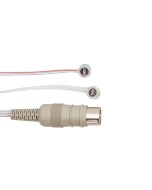
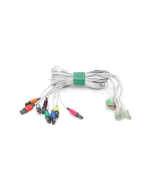
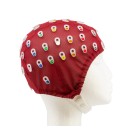
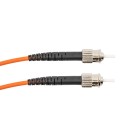
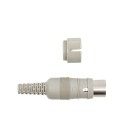

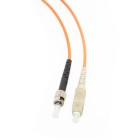

 Australia & New Zealand
Australia & New Zealand  Canada
Canada  European Union (EU)
European Union (EU)  France
France  Germany
Germany  Japan
Japan  Switzerland
Switzerland  USA
USA  International
International